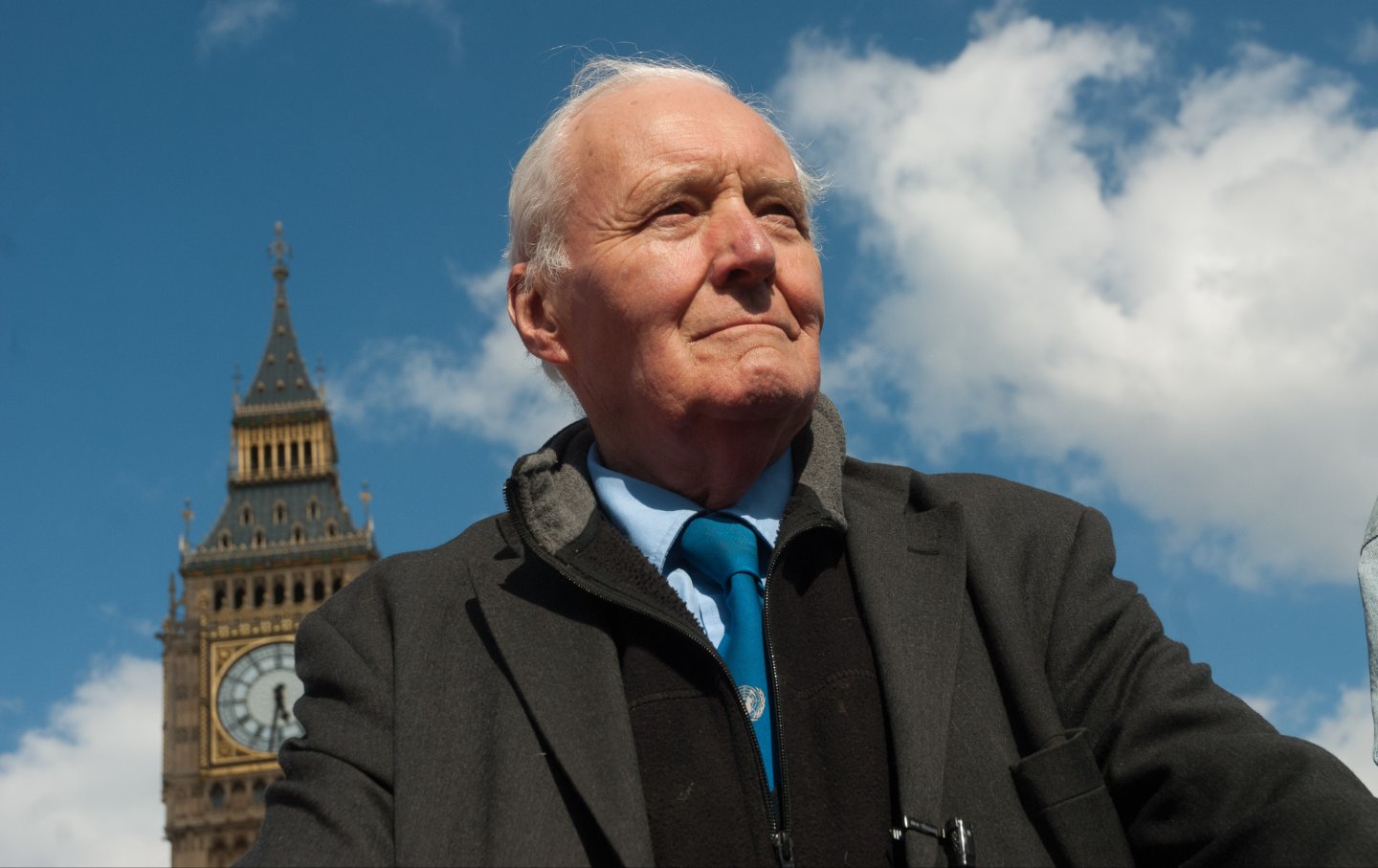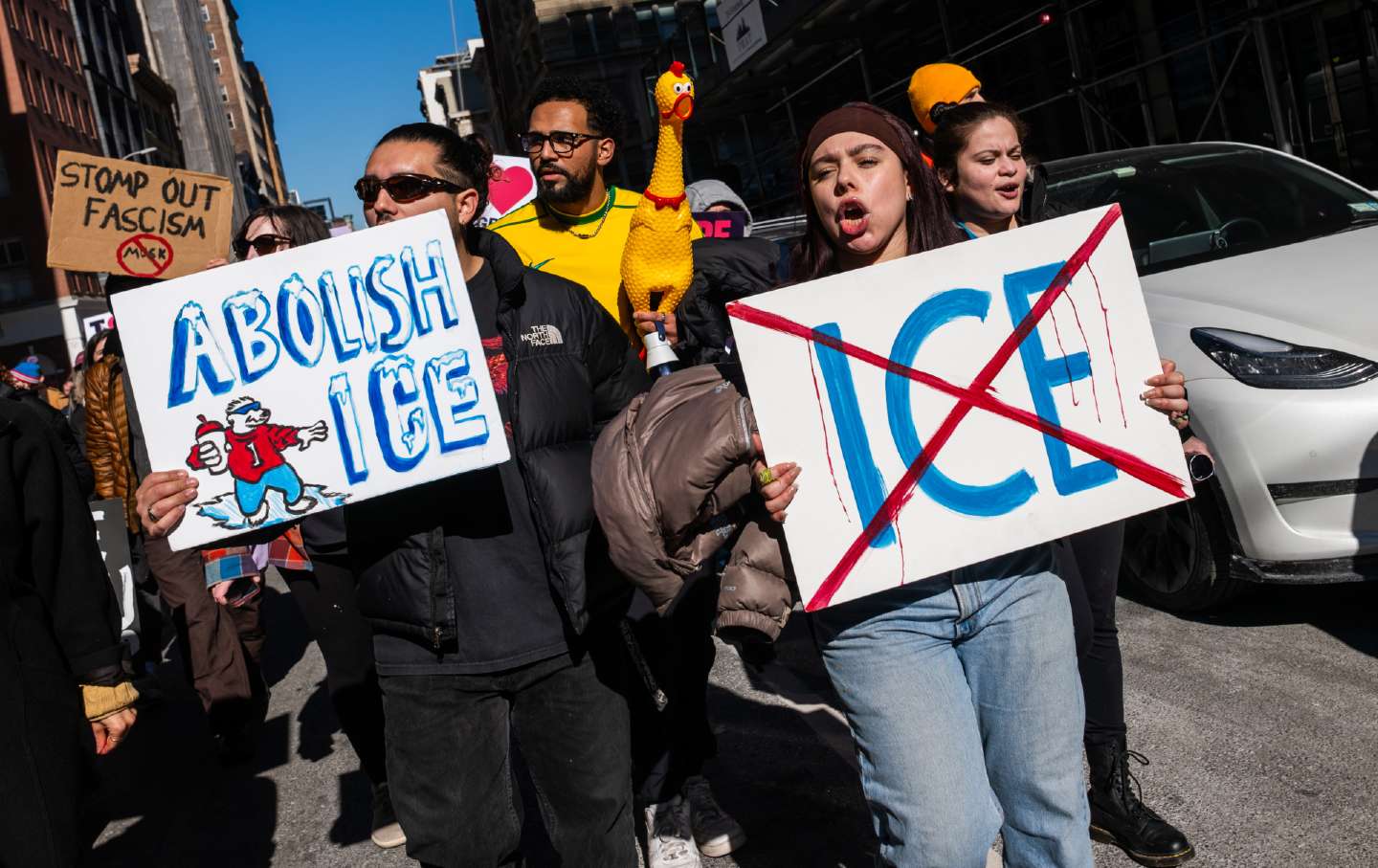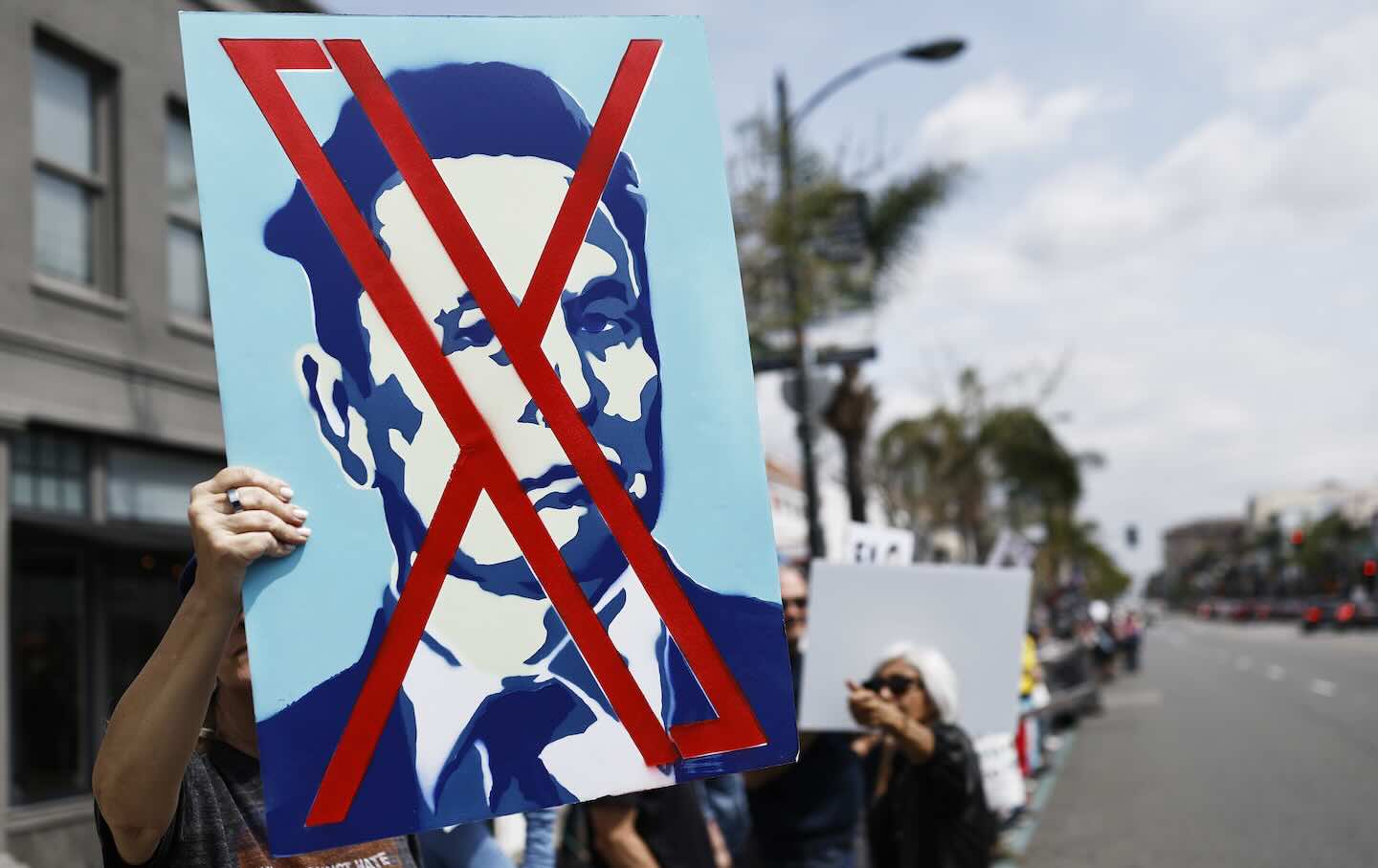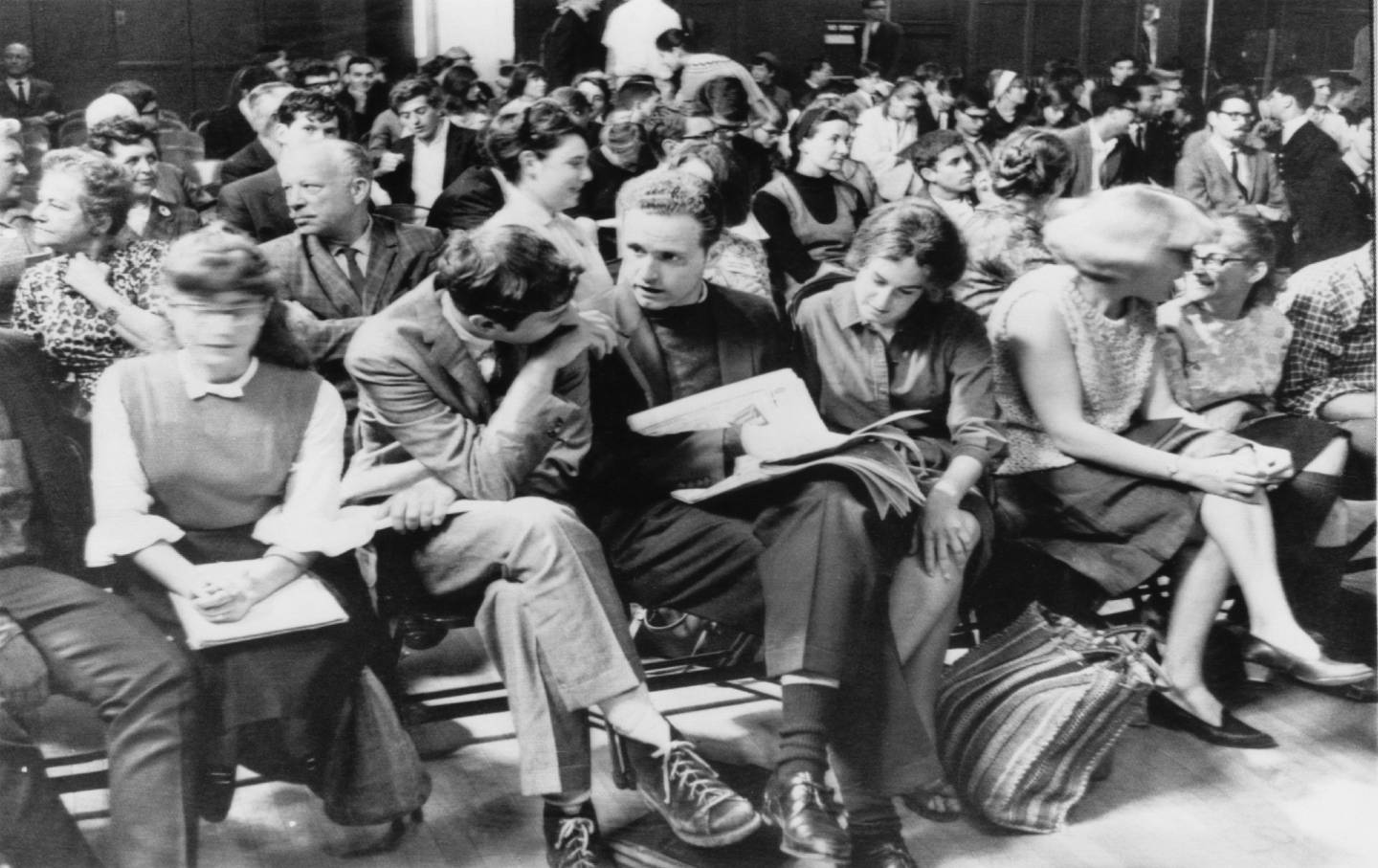Why University of California Workers Stopped Their Historic Strike
Nearly 80 percent of participating union members voted in support of the strike on May 1, citing the repression of pro-Palestine protesters at UCLA, UCSD, and UCI.
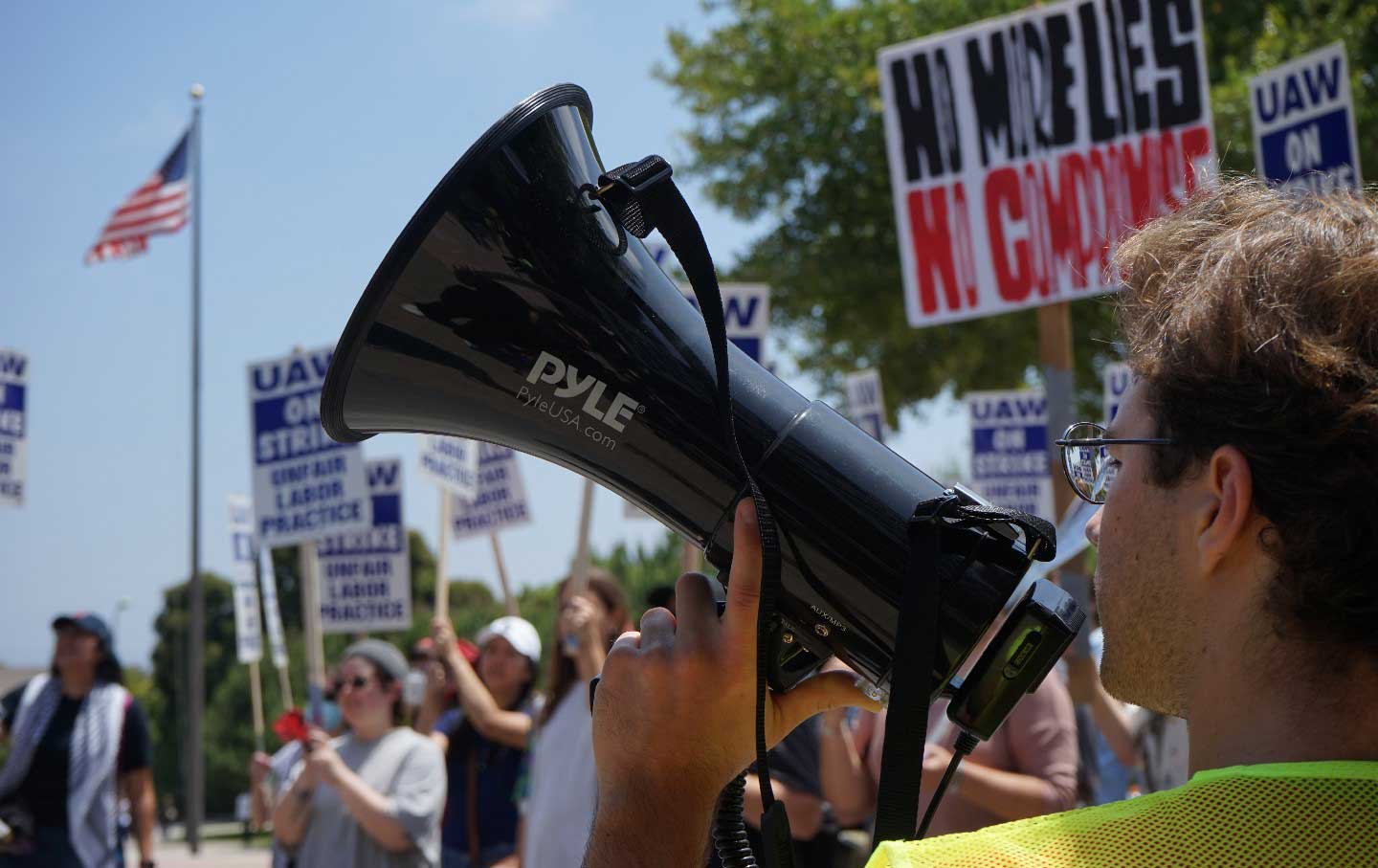
After nearly a month of historic solidarity in support of pro-Palestine student protesters, University of California (UC) academic workers have been ordered by an Orange County Superior Court judge to pause their strike.
The temporary restraining order comes after the University of California filed a lawsuit against UAW 4811—which represents academic workers across the system—citing a breach of the UAW’s contract and arguing that the union cannot strike over “non-labor” issues.
“The blatant breach of the parties’ no-strike clauses by UAW will continue to cause irreversible harm to the University as it will disrupt the education of thousands of students in the form of canceled classes and delayed grades,” said Melissa Matella, associate vice president for Systemwide Labor Relations, in a statement released by the UC Office of the President. “The breach of contract also endangers life-saving research in hundreds of laboratories across the University and will also cause the University substantial monetary damages.”
However, UC workers have made it clear that their efforts had everything to do with their labor rights.
Nearly 80 percent of participating union members voted in support of the strike on May 1, which came after the union filed multiple Unfair Labor Practice charges with California’s Public Employment Relations Board against the university, citing the repression of pro-Palestine protesters at US Los Angeles, UC San Diego, and UC Irvine by police and administration.
Since then, UAW 4811 has been at the forefront of the labor movement’s support for Palestine, joining a broader intersectional coalition calling for justice in Palestine. On December 1 of last year, the UAW became the first international union to call for a cease-fire. Soon after, the UAW was joined by the Service Employees International Union, the American Federation of Teachers, and the National Education Association.
But UAW 4811 took its campaign a step further, moving beyond a cease-fire statement and engaging its membership of nearly 48,000 in advancing specific demands. In an interview with the Los Angeles Times, Rafael Jaime, the union’s copresident, said that the union’s goal with the strike was to “maximize chaos.” It was the first time the union had gone on strike since 2022, when workers struck for higher pay and better working conditions—the largest higher-education strike in history.
“The UC’s endowments and retirement accounts…generate a lot of revenue for the university and workers have a right…to have a say in what the university is investing in,” said UAW 4811 Sergeant-at-Arms Jacob Fontana. “This is really a crisis of the university’s own making here. We’ve seen plenty of different universities take that path to peacefully engage in negotiations with their encampments, to allow peaceful protests to evolve on their campuses. The University of California chose a different path here, one of violence.”
Fontana said union support for Palestine was born when workers across UC campuses started exploring the way their research was tied into military activity, leading to demands from workers that UC change its investment policies. In a wave of student activism for Palestine, Fontana says union members were on the “front lines.” When UC permitted its campuses in Los Angeles, San Diego, and Irvine to be entered by police, that was the final straw for many union members.
In a statement, UAW 4811 condemned the use of violent force against students across the nation and expressed solidarity with these protesters. “The freedom to assemble and protest are fundamental rights in a democratic society and core to union members’ ability to demand meaningful change,” the statement reads. “Deploying police forces to arrest and prosecute these individuals is a litigious waste of taxpayer resources designed to intimidate and silence dissent.”
The union’s demands include amnesty for all staff, students, and faculty who have been arrested while participating in pro-Palestine protests; the right to free speech and political expression on campus; UC divestment from military contractors and other companies profiting from Israel’s war on Gaza; transparency regarding the UC’s funding sources and investments; and that the UC support researchers who want to opt out of funding that is tied to the military and oppression of Palestinians.
The strike—modeled after the UAW strike against the Big Three automakers last year—began on May 20 at the University of California, Santa Cruz (UCSC). A little over a week later, the action was joined by workers at UCLA and UC Davis, then spread to UC San Diego, UC Santa Barbara, and UC Irvine. Across campuses, workers suspended classes, withheld grades, stopped their research, and held rallies—with students also joining the picket line.
“As we witness the escalation of genocide against Palestinians, UC Students for Justice in Palestine [SJP] celebrate the solidarity of UAW 4811 workers who overwhelmingly voted to authorize a stroke,” the UC SJP said in a statement on May 20.
The strike was met with hostility from UC officials. The UC Office of the President issued a statement calling it “illegal” for violating the terms of the union’s new contract by concerning “non-labor issues” and announced that it had filed an Unfair Labor Practice charge with PERB on May 17. On May 21, the UC announced that it had filed a separate injunction to end the strike, arguing that the strike pressured the university to concede to “politically motivated” demands, but PERB denied the injunction on May 23.
Almost two weeks later, the UC failed yet again to obtain a court order to shut down the strike. The UC then announced on June 5 that it was suing UAW 4811 in Orange County Superior Court. Two days later, Superior Court Judge Randall Sherman granted the university a temporary restraining order, ordering a pause in the strike while the no-strike clause in the collective bargaining agreement is in effect. The university says it will continue to pursue legal claims with PERB and in state court.
Popular
“swipe left below to view more authors”Swipe →The union continues to maintain that the strike is indeed a labor issue. Citing the excessive degree of police repression that took place at UCLA, rank-and-file member and UCLA PhD student Gene McAdoo said that the university has created an “unsafe” and “toxic” environment by “unleashing violence” on students. Jack Fox Keen, a computer science and engineering PhD student at UCSC, also pointed to a lack of choice with regard to research funding as a labor issue, especially in STEM departments, which they say are largely funded by the Department of Defense.
“You should be allowed to speak your mind at your workplace without being beaten by the cops,” Keen said. “As workers, we should not be put in a position where our only option to do research is the Department of Defense.”
Despite the order to halt the strike, union leadership insists on the strike’s legality and importance. “PERB, the regulatory body with the expertise to rule on labor law, has twice found no grounds to halt our strike,” Jaime said in a statement. “I want to make clear that this struggle is far from over. In the courtroom, the law is on our side and we’re prepared to keep defending our rights—and outside, 48,000 workers are ready for a long fight.”

